#( tale as old as tragedy: william & juliet. )
Text
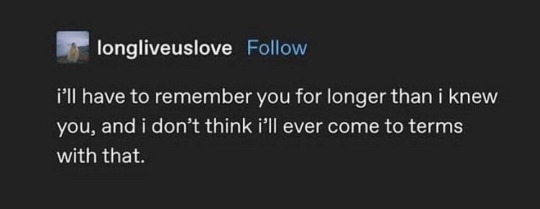
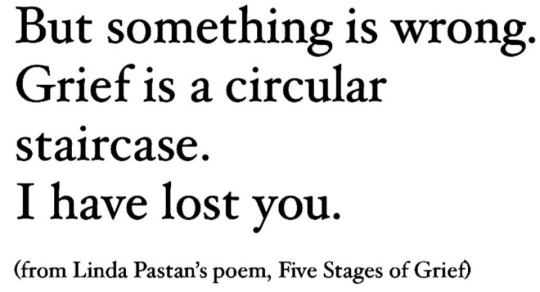
thinking about william & juliet tonight. no i’m not crying you are
3 notes
·
View notes
Text
bangtan as love stories ♡₊˚ ・₊✧
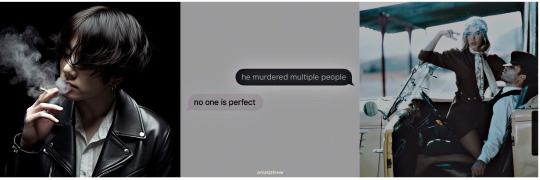
jungkook - Bonnie and Clyde
The couple was known for their bank robberies, although they preferred to rob small stores or rural funeral homes. Their exploits captured the attention of the American press and its readership during what is occasionally referred to as the "public enemy era" between 1931 and 1934. They were ambushed by police and shot to death in Bienville Parish, Louisiana. They are believed to have murdered at least nine police officers and four civilians.
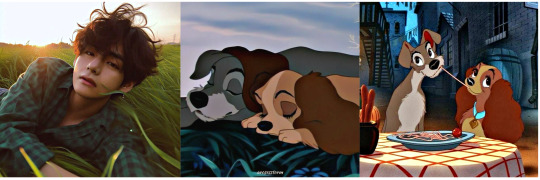
taehyung - lady and the tramp
A pampered Cocker Spaniel whose life takes a sudden turn when a dashing Tramp from the other side of town finds his way into her heart. A streetwise mutt who knows his way about town, but once a little lady catches his eye, this scruffy bachelor becomes one tame Tramp.

yoongi - call me by your name
Set in 1983 in northern Italy, Call Me by Your Name chronicles the romantic relationship between a 17-year-old, Elio Perlman, and Oliver, a 24-year-old graduate-student assistant to Elio's father Samuel, an archaeology professor.
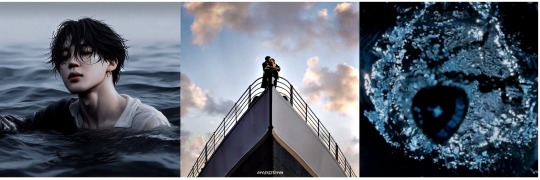
jimin - titanic
Incorporating both historical and fictionalized aspects, it is based on accounts of the sinking of RMS Titanic in 1912. Rose and Jack star as members of different social classes who fall in love during the ship's maiden voyage.

namjoon - the notebook
The film stars a young couple who fall in love in the 1940s. Their story is read from a notebook in the present day by an elderly man, telling the tale to a fellow nursing home resident.

jin - pride and prejudice
A novel of manners, it follows the character development of Elizabeth Bennet, the protagonist of the book, who learns about the repercussions of hasty judgments and comes to appreciate the difference between superficial goodness and actual goodness.
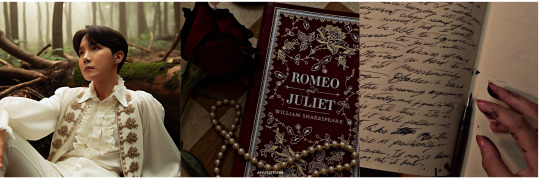
hope - Romeo and Juliet
Romeo and Juliet is a tragedy written by William Shakespeare early in his career about the romance between two Italian youths from feuding families.


© 2023 of Mia (arosesstorm). All Rights Reserved.
#bts#run bts#bts lockscreens#bts reactions#bts reaction#bts namjoon#bts meme#bts fluff#bts jin#bts smut#bts layouts#bts yoongi#bts fic#bts army#bangtan#bangtan sonyeondan#bts jimin#jimin#namjoon#bts packs#bts x reader#bts messy edits#bts messy packs#bts messy moodboard#bts messy layouts#bts messy headers#bts messy bios#bts messy users#bts messy locs#bts icons
34 notes
·
View notes
Text
Writing 101: How to Write a Prologue
To help answer a question that was submitted to me, I’ll go ahead and create a whole separate post for it. I know it’s a bit different than what was asked in but I promise the answer to the question is there!
What Is a Prologue?
A prologue is a piece of writing found at the beginning of a literary work, before the first chapter and separate from the main story. The definition of prologue introduce important information—such as background details, or characters—that have some connection to the main story, but whose relevance is not immediately obvious.
Fitting the definition of prologue, the word comes from the Greek prologos, which means “before word.” The Ancient Greeks frequently used prologue in dramatic works of theater, where it functioned more like a first act to a play.
What Is the History of Prologue in Literature?
The invention of the prologue is attributed to Euripides, an influential Greek playwright and poet who predominantly produced tragedies about the darker side of human nature. Euripides’ plots often featured passion and revenge.
For a good example of how Euripides uses this literary device, consider the prologue to one of his most famous works, “Medea.” In the play, a woman takes revenge on her unfaithful husband by murdering him, his lover, and her own children. But before we get to the action, an old nurse enters the stage and tells the audience some of the facts so far:
Medea and her husband, Jason, are having marital problems
Jason has run off with someone else
Medea has been stricken by grief and has even begun to despise her own children by Jason
What Is the Purpose of Prologue in Literature?
Prologues serve an integral role in fiction writing, as well as playwriting. In modern literature, Geoffrey Chaucer started the tradition of using a prologue with his Canterbury Tales, a collection of 24 stories written from 1387-1400. Chaucer used his prologue as a kind of roadmap for the entire work, which tells the story of a group of pilgrims on their way to Canterbury.
A good prologue performs one of many functions in a story:
Foreshadowing events to come
Providing background information or backstory on the central conflict
Establishing a point of view (either the main character’s, or that of another character who is privy to the tale)
Setting the tone for the rest of the novel or play
What’s the Difference Between a Prologue and a Preface, Foreword, or Introduction?
While prefaces, forewords, and introductions serve a similar function of providing additional context for the content to come, they have some key differences from a prologue.
A preface is written from the point of view of the author, not a character or narrator. It explains the origins, development, legacy, or aims of the book, and often acknowledges others who contributed. Prefaces are employed mainly in nonfiction books, but may be used in fiction as well.
A foreword is written by a critic, subject matter expert, or other public figure who is not the author. A foreword typically introduces readers to the book by connecting its content or themes to their own experience. Forewords are used in both fiction and nonfiction.
An introduction is written from the point of view of the author, and offers additional information to help the reader understand the subject of the book, including historical context. Prefaces are employed mainly in nonfiction books.
3 Famous Examples of Prologues in Literature
Romeo and Juliet,” William Shakespeare (1591-1595)
One of the most famous literary prologues of all time, this prologue takes the form of a sonnet that introduces readers to the setting and characters of the play, as well as the dire situation in which the two star-crossed lovers find themselves. The prologue begins as follows:
Two households, both alike in dignity, In fair Verona, where we lay our scene, From ancient grudge break to new mutiny, Where civil blood makes civil hands unclean.
Shakespeare doesn’t hold back on spoilers: the sonnet also reveals the play’s tragic ending.
Lolita,” Vladimir Nabokov (1955)
Nabokov’s prologue is designed to heighten the controversy of its subject matter. It takes the form of a fictional foreword by an academic, who has supposedly discovered the book and is warning readers of its subject matter prior to chapter one.
“These are not only vivid characters in a unique story: they warn us of dangerous trends; they point out potent evils,” it reads. “‘Lolita’ should make all of us—parents, social workers, educators—apply ourselves with still greater vigilance and vision to the task of bringing up a better generation in a safer world.”
Jurassic Park,” Michael Crichton (1990)
Crichton actually offers two prologues, each showcasing a different style. The first reads like a legal document, outlining the seriousness of an “incident” and the “remarkable events” that followed.
The second prologue is more literary: a short scene, separate to the main story, in which a man is treated for an injury by a doctor in a remote village in Costa Rica. The doctor observes that the man seems to have been mauled by an animal. While treating him, the man wakes up and says one word: “Raptor.”
How to Write a Prologue in 3 Easy Steps
Introduce the main character(s). Some twentieth-century plays have used prologues to great effect. In Tennessee Williams’s The Glass Menagerie (1944), the prologue introduces the audience to the play’s narrator, Tom Wingfield, who explains that what the audience is about to see is drawn from his own memories. Tom tells the audience: “I am the narrator of the play, and also a character in it. The other characters are my mother Amanda, my sister Laura, and a gentleman caller who appears in the final scenes.”
Drop hints. Crime fiction and thrillers often make use of prologues to hint at characters, locations, and the mystery that is to come. Sometimes, a prologue may be set centuries or miles apart from the book, and appear wholly unrelated; however, it will somehow tie back into the main plot later in the novel.
Add only relevant details. A prologue should not be an “information dump”: a good prologue enhances your story, rather than explaining it. The best way to decide what to include in a prologue is to ask yourself: what does the reader absolutely need to know before starting to read the main story?
104 notes
·
View notes
Text
Literary Canon (from kissgrammar)
The Holy Bible, Authorized King James Version [At a minimum, the books of Genesis, Exodus, Job, Psalms, from the Old Testament; Matthew, Mark, Luke, John, and Apocalypse from the New.] Whether or not you are Christian is irrelevant. The civilization in which we live is based on and permeated by the ideas and values expressed in this book. Understanding our civilization, the world in which we live, is probably impossible without having read -- and thought about -- at least the most famous books in the Bible. Historically, the King James Version is considered the most artistic, and thus has probably had the most literary influence.
Homer, The Iliad
Homer, The Odyssey
Sophocles, Oedipus the King (Oedipus Rex)
Sophocles, Antigone
Plato, The Republic, especially "The Myth of the Cave"
Ovid, Metamorphoses
Saint Augustine, The Confessions
Dante, The Divine Comedy
Giovanni Boccaccio, The Decameron
Niccolo Machiavelli, The Prince
Giambattista Vico, Principles of a New Science
Miguel de Cervantes, Don Quixote
Geoffrey Chaucer, The Canterbury Tales
Romeo and Juliet
King Lear
Hamlet
Othello
Macbeth
John Donne, "Holy Sonnet XIV"
John Donne, "A Valediction Forbidding Mourning"
Andrew Marvell, "To His Coy Mistress"
John Milton, Paradise Lost
Jonathan Swift, Gulliver's Travels
A Modest Proposal
Daniel Defoe, Robinson Crusoe
Laurence Sterne, The Life and Opinions of Tristram Shandy, Gentleman
Michel de Montaigne, Essays, especially "Of Experience"
Francois Rabelais, Gargantua and Pantagruel
Moliere, The Misanthrope
Blaise Pascal, Pensees
Jean-Jacques Rousseau, Emile
Voltaire, Candide
Erasmus, In Praise of Folly
Johann Wolfgang von Goethe, Faust, Parts One & Two
Honore de Balzac, Old Goriot (also translated as Pere Goriot)
Stendhal, The Red and the Black
Gustave Flaubert, Madame Bovary
Emile Zola, Germinal
Henrik Ibsen, A Doll's House
William Blake
William Wordsworth
Jane Austen, Pride and Prejudice
Lord Byron, Don Juan
John Keats, "Ode on a Grecian Urn"
Robert Browning, "My Last Duchess"
Charles Dickens - Oliver Twist
A Tale Of Two Cities
Hard Times
A Christmas Carol
Matthew Arnold, "Dover Beach"
John Stuart Mill, On Liberty
Lewis Carroll, Alice in Wonderland
Charlotte Bronte, Jane Eyre
Emily Bronte, Wuthering Heights
Francis Thompson, "The Hound of Heaven"
Samuel Butler, Erewhon
Oscar Wilde, The Picture of Dorian Gray
George Eliot- Silas Marner
Middlemarch
Robert Louis Stevenson, Dr. Jekyll and Mr. Hyde
Friedrich Nietzsche - Beyond Good and Evil
The Will To Power
The Birth of Tragedy
On the Genealogy of Morals
Alexander Pushkin - Eugene Onegin
The Bronze Horseman
Nikolai Gogol -The Overcoat
Dead Souls
Mikhail Lermontov, A Hero of Our Time
Ivan Turgenev, Fathers and Sons
Fyodor Dostoevsky -Notes From the Underground
Crime and Punishment
Leo Tolstoy -The Death of Ivan Ilych
War and Peace
Anton Chekhov, The Cherry Orchard
James Fenimore Cooper, The Deerslayer
Ralph Waldo Emerson, Essays
Emily Dickinson - "Because I Could Not Stop For Death"
"The Tint I Cannot Take"
"There's a Certain Slant of Light"
Walt Whitman - "Song of Myself"
"The Sleepers"
"Crossing Brooklyn Ferry"
"As I Ebbed With The Ocean of Life"
"Out of the Cradle Endlessly Rocking"
"When Lilacs Last in the Dooryard Bloomd"
Nathaniel Hawthorne - Young Goodman Brown
The Scarlet Letter
Herman Melville, Moby-Dick
Edgar Allen Poe - "The Raven"
The Cask of Amontillado
Henry David Thoreau, Walden
Kate Chopin -The Story of An Hour
The Awakening
Stephen Crane, The Red Badge of Courage
Henry James
Mark Twain, The Adventures of Huckleberry Finn
Luigi Pirandello
5 notes
·
View notes
Text
I wrote a Golden Shovel poem for my English class today :)
For those who don't know, a golden shovel is "a poetic form in which the last word of each line forms a second, pre-existing poem (or section thereof), to which the poet is paying homage." (Wikipedia)
I chose a line from William Shakespeare's play Romeo and Juliet: "For never was a story of more woe than this of Juliet and her Romeo."
I have never known such pain, for
I have never
known one who was
Star-crossed like so, a
Tale of tragedy, a story
Told, a story old; a story of
Two who never loved more
Nor suffered more woe,
Of those who cared more than
What was known. For this
True love is nothing but of
The heart, as pure as Juliet,
As bitter as poison and
The blood that flows – as loving as her
own Romeo
#my poem#original poem#golden shovel#golden shovel poetry#my english class#i hope the user who told me that no one cares about my stuff knows that idgaf bc i'm doing this for me and my friends. i care about my stuf#so fuck you i guess#romeo and juliet#william shakespeare#william shakespeare plays#william shakespeare's romeo and juliet#class assignment
2 notes
·
View notes
Photo

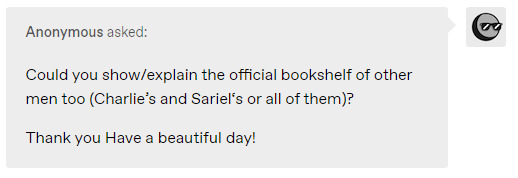
On Row 1:
Born a Crime by Trevor Noah
Clinical Handbook of Mindfulness by Fabrizio Didonna
The Book of Emma Reyes by Emma Reyes
At times, the decision for the Chinese title seems to give more of a clue as to why these books were chosen. Trevor Noah’s and Emma Reyes’ book can be roughly summarized as children born in terrible circumstances and having to “live in secret” and they end up finding their own path in life. Charlie’s dad controls his life and so I think this kind of exploration and questioning of his own path in life is hinted at in these books.
Fabrizio Didonna’s book has to be a cue to his second trajectory and how he started treating his own issues, although to be honest I think he missed the memo about “a non-judgmental self-observation that promotes personal awareness” because, in my opinion, he’s gaslighting himself. Charlie has to convince himself that everything he’s done is right, or else he’ll be crushed and shattered under the weight of his own bleeding heart for the world.
On Row 2:
Fang Si-Chi’s First Love Paradise by Lin Yihan
Controlling People: How to Recognize, Understand, and Deal With People Who Try to Control You by Patricia Evans
Collection of Stories by Anton Chekhov
Lin Yihan’s book breaks my heart just from the summary and it looks like the author committed suicide at 26 years old in 2017. I think this is another example of how much Charlie cares about bringing attention to the corruption in our society and how terribly lasting trauma can be.
Patricia Evans’ book is a targeted attack against Charlie’s dad, haha. I love the choice of the Chinese name, “Do Not Use Love To Control Me”.
The Anton Chekhov stories chosen by the Chinese translator, Ru Long, are these:
A Doctor’s Visit
An Upheaval
Ionych
The Head of the Family
Volodya
The Husband
Polinka
Anyuta
The Two Volodyas
A Nervous Breakdown
Honestly, you could comment on each individual story because they all have different themes but, other than “A Doctor’s Visit”, everything else is quite grim. You have people losing sight of a goal in their life, indulging in debauchery, or confronted with the unfeeling world and breaking down.
On Row 3:
Collection of Fairy Tales by Hans Christian Andersen
Romeo and Juliet by William Shakespeare
I can’t find an accurate table of contents about how many stories are in the Chinese collection, so let’s just assume all of them or at least the most notable ones. I don’t have much to say here except that fairy tales are a theme with him. He and the heroine went to a circus together and the theme of the event was all about fairy tales!
Romeo and Juliet is interesting in that I don’t think the focus for Charlie would be on the “tragic love” but rather that the tragedy was caused by the two families, or society, the two teenagers were in. It could have been prevented if the two families set aside their hatred for each other.
27 notes
·
View notes
Text
@slaughterlocked tags from this.
#(( had this saved in drafts so i could go insane about it every single time i saw it ... ))#( tale as old as tragedy: william & juliet. )#( scent of pipe tobacco: isms. )#( house haunted by shame: default iii. )#(( WAILS over these two. thank u for tagging me i will NEVER be ok ))
omg i forgot abt this one ahhh !!
brb running my hands down my face & shaking this dynamic. i could write a sixty page essay on these two. thinking abt them 24/7 help --
#slaughterlocked#𝐢𝐧𝐬𝐩𝐨 ⎯ dynamic. ↻ 𝐞𝐯𝐞𝐫𝐲 𝐧𝐨𝐰 𝐚𝐧𝐝 𝐭𝐡𝐞𝐧 𝐢𝐭'𝐬 𝐥𝐨𝐯𝐞 ⎯ will + juliet. with slaughterlocked.#look ma! finally made them a tag !!!!!#brb gonna go cry.#ugh. losing it over the idea of them having love for each other on some level even after the divorce.#and it just doesn't work !!!!!!!! bc it can't !!!!!!#screams. /man./#also yes i used an alexandra k.ay song for the tag bc of course i did --#tbd.
0 notes
Text
BWYD Chapter 29
Setting Up the House, Part 2 (ft. Babysitter Mari)
Marinette smiled, wiping the sweat off of her brow, as she looked at the living room. She loved how the couch she picked out looked with the large rug she found tucked away in one of the closets. The couch was a large brown U-shaped beauty that hugged the room and surrounded the large rug. The rug was a large faded blue oriental area rug which had stories to tell.
Marinette let out a happy giggle as she plucked a few blue throw pillows from the box of throw pillows beside her and placed them strategically across the couch. She smiled and shook out her shoulders before she pulled out her phone and pressed play on the “Book of Mormon” soundtrack.
Marinette tucked the box into one of the vacant corners as the beginning chords of “Hello!” played through the house. She hummed along to the song as she fluffed the pillows and danced over the rug, bringing the life back into the house. She laughed, loudly and clearly, as she wobbled on her feet and nearly fell on her butt. She smiled at the TV stand, a cute light gray number with two shelves, or really one shelf divided in half with a thin divider, above three glass doors hiding a cavity separated in half with a shelf made of the same material as the rest of the TV stand. There was a beautiful black lined TV sitting atop the TV stand in front of a beautiful print of a cityscape. Marinette draped a gray throw blanket across the back of the couch and smiled contently, the room was really coming together.
Marinette let out a laugh as the singer rushed “Of Latter-day Saints” from “Two by Two”. She walked from the living room to the dining room, gently adjusting the lampshades and the way the blanket draped across the back of the couch, to straighten the table placements laid on the warm brown top of the white framed table with matching chairs set for eight, despite the fact that there are only five of them. She glanced at the gray and white striped rug under the table with a smile before she nodded to herself. The house was really starting to come together.
---
Marinette sat between her brothers in her English class, again dressed in Harley’s “Daddy’s Little Monster” shirt (however this time with the collar resting open across her shoulders) over Pam’s green tank top paired with Selina’s faux leather skirt, she had a single earbud in while she pretended to listen to Mr. Devereaux drone on about whatever it was her classmates were going over. She finished typing the conclusion to her essay on “The Tale of Despereaux” and quickly began typing up her sources cited page when she saw Mr. Devereaux turn away from the chalkboard.
“Can anyone answer the question on the board?” He gestured to the board, upon which he’d written a quote from one of Shakespeare’s plays. “What about, you Miss Wayne since you seem to be more interested in whatever you’re doing instead of my class.”
Marinette glanced at the board, the simple question “What’s in a name?” glaring at her in white chalk. She felt a smile tug at her lips, remembering when they’d done the play at home (at Jay-Jay’s insistence) for Grandpa Alfie, and settled into her chair. “That which we call a rose by any other name would smell as sweet. So Romeo would, were he not Romeo called, retain that dear perfection which he owes without that title. Romeo, doff thy name, and for that name, which is for no part thyself, take all of me.” She finished typing her the last line of her sources and attached her document to an email to send to her English teacher in Gotham.
“I take thee at thy word. Call me but love, and I’ll be new baptized. Henceforth I never will be Romeo.” Colin responded, pouring his emotion into the line.
“William Shakespeare’s ‘Romeo and Juliet’, Act Two Scene Two lines forty-six to fifty-one.” Damian glanced at Marinette and smiled at his little sister.
Mr. Devereaux simply stared at her, he hadn’t believed her to know the text, nor the line numbers, for the question. Of course, it hadn’t really been a question simply more of a quote that he hadn’t suspected anyone in the class to know. He nodded and began pacing the front of the room. “What does anyone know about Shakespeare’s ‘The Tragedy of Romeo and Juliet’?”
The three Wayne children toned him out, simply taking their copies of ‘The Tragedy of Romeo and Juliet’ out of their bags and placing them in a pile beside Marinette’s laptop. They were all old, the original text (or as original as second-hand publishers could get), and bound in aged leather with the title written across the front in a beautiful golden calligraphic type, not exactly the type of thing most would assume would belong to teens but the Waynes treasured these books simply because their brother loved reading and producing plays.
---
Marinette smiled as she chased Nino’s little brother around the park. She let out a battle cry as she scooped him up and threw him over her shoulder before Nadja Chamack’s daughter, Manon, ran into her side and tackled Marinette to the ground. The three laid on the ground laughing, as two young girls approached them from the opposite side of the park. Marinette smiled at the two girls who couldn’t have been any older than eight years old, the same age as the two other children Marinette was spending her afternoon off with. “Hi. I’m Marinette, this is Manon and Chris.” She held out her hands to the two other girls. “What are your names?”
The girl with teal earrings smiled and grabbed Marinette’s left hand in her own. “My name’s Etta. She’s Ella.” Etta smiled before nudging her sister, Ella hesitantly wrapped her own hand around Marinette’s and offered a shy smile.
“Hi.” Ella shied away behind her sister after she let go of Marinette’s hand.
“Do you want to play?” Chris asked, bouncing on the pads of his feet. “I’m Falak, Manon is a cat themed hero but not Chat Noir. She says she’s Chatonne de nuit.” He shrugged and smiled at the two girls. “Well, do’ya?”
Ella and Etta exchanged a look before nodding. “I’ll be Nubia and Ella can be Wadjet.”
@dast218 @toodaloo-kangaroo @amayakans @crazylittlemunchkin @marinettepotterandplagg
18 notes
·
View notes
Note
it looks different somehow, but i can’t figure out what it is. / from jules!
THE MAGNUS ARCHIVES DIALOGUE PROMPTS / always accepting!
WILLIAM’S BROW CRINKLES UPWARDS, SHOOTING A FAUX-MOURNFUL LOOK TO HIS SOON-TO-BE-FIANCEE. With a teasing lilt of sorrow in his voice, he shakes his head, removing his arm from her shoulders and stepping aside with a heavy sigh. “Look around,” he urges, impatient and eager, voice bristling with anticipation, “think carefully. What’s new, hmm? I know you know.”
The difference? Aside from the usual clutter of William’s side of the bedroom – animatronic blueprints tucked under his pillow; the odd shirt or sock draped haphazardly over a set of drawers or chair; the pile of books under his side of the bed collecting dust – there is a tiny little animatronic ballerina, tucked neatly on top of Jules’s nightstand. It carries a tiny wooden box, meant to hold a ring. If she opens it, she’ll find it empty.
When she turns to William, he’ll be on one knee, holding it out for her hopefully.
It’s not the most romantic of settings… Far from it. And yet his ego won’t allow him to do this in public. What would people think, if she turns him down? It could affect the business, his reputation, their lives together. He won’t allow for that. And so he gestures grandly around their bedroom (neater and tidier than usual, because he has some class) an excited little note in his voice.
(He’s absolutely terrified, too, but his ego won’t let him admit that either.)
“Other than the fact I’ve actually cleaned,” he says, a little sheepishly, “what else is different?”
#(( HE'S CUTE. (derogatory.) HE'S TRYING TO BE CUTE ! ))#( shall we read this story again?: starters. )#( tale as old as tragedy: william & juliet. )#a; florietiae#( hungry dog’s logic: default ii. )
2 notes
·
View notes
Text
Closing Arguments For Reylo
After it seems like we’ve spent a year anticipating this movie--from the film wrap in February to the teaser trailer in April to the Vanity Fair stuff in June to the D23 trailer at the end of August to the Road To TROS stuff to this final trailer and the onslaught of press for the film--we’re finally in the home stretch.
Who will live? Who will die? Will Reylo ride off into the sunset, a HEA at last for a Star Wars couple, will it end in tragedy or worse yet, will it end in a vague incoherent muddle? After all, no fairy tale ends with “they lived ambiguously ever after.”
I think we’re all going to be nervous sitting in the theater come Dec. 18-20 because whether we believe “leaks” or not, we’re just not going to know for sure until we see the film. I’m almost as nervous about their misusing/under-using Adam in this film as I am about the filmmakers blowing Reylo.
Yet of all of the sequel films, I’m the most confident about this one going in. This is the last film in this story and it’s not going to end with the message that the Skywalker family was somehow a mistake or some curse upon the galaxy that needed to be eliminated, while the few positive aspects about the Skywalkers are handed off to Rey because she’s such a nice girl. It’s not going to end like Romeo and Juliet. It’s not going to end without redemption for Kylo Ren/Ben Solo. The final chapter in the series is not only going to redeem him but everyone else who screwed up before him. It’s going to end this conflict and a Jedi Order 2.0 is going to arise. There will be a big party at the end. It will give you cavities and possibly blood sugar spikes.
As far as I’m concerned, Rey and Ben being together--in LOVE--is an integral part of that happy ending. Cinderella gets her prince. Beauty finds true love with the man who had been the Beast. Anastasia marries Christian Grey and has a baby. There’s just no such thing as a heroine who cheerfully ends up without her lover and in spite of what a lot of people think, Star Wars spends far more time utilizing traditional storytelling tropes (though in new ways) than subverting them. Like I wrote in my piece about gothic romances, the woman gets the man, the manor, and the money. Rey walks into TROS already with the metaphorical substitutes for the manor (the Falcon) and the money (the objects associated with the Skywalker family). She’s already in with her potential mother-in-law. All she needs is for Ben to show up to the metaphorical/literal wedding.
And everything is pointing toward that happening. I’m not saying TROS will end with Ben and Rey in a wedding or Rey waddling about preggers. Maybe it will end that way, maybe it won’t. But it will at minimum pair them together a la Han and Leia at the end of ROTJ.
First, let’s take on the only legitimate, in-universe obstacles to Rey and Ben being in a romantic relationship. No, I don’t mean that they could be related. What I do mean is that there are two things that would prohibit romance: one is obvious...no Bendemption. But I’m certain it is going to happen. The other is the old school Jedi prohibition against forming attachments, including romantic relationships. Many fans expect this deeply unpopular rule to be cast aside. But in the name of fairness, it bears pointing out that so far, this deeply unpopular rule hasn’t been cast aside in the movies. Sure there was a bit in the TLJ novel implying Luke wasn’t fond of this deeply unpopular rule but on the other hand, he lived it. Generalissima Leia did lots of other things but never became a Jedi herself. Maybe she was too busy. Or maybe she’d rather bonk Han to her heart’s content than become a space nun. There’s been some recent news that Leia was originally set to finally take up the Jedi mantle in the last ST film, something that obviously changed after Carrie’s passing in 2016. Note that this would have been after Leia had become a widow. Several months ago I’d listened to a podcast containing an interview with former Lucasfilm employee J.W. Rinzler. He revealed that while the expanded universe was allowed to go nuts with Jedi romances and marriages, Lucas kept grumbling that “Jedi aren’t supposed to marry!” He disliked Mara Jade partially for this reason.
Of every argument against Reylo happening that is the one that no one seems to take seriously yet it’s far more likely to be an issue than a sudden revelation of Rey Skywalker-Solo. The question is were Chris Terrio and J.J. Abrams willing to say, “Hey George, your rule sucks so we’re gonna throw it out” to Lucas’s eternal annoyance? Or, is the coupling of Rey and Ben supposed to have happened all along, even in Lucas’s drafts? Are Rey and Ben a glaring exception to the rule?
My argument is that they are going to be an exception. Reylo is not just about hot people hooking up, it’s about mystical forces coming together in a union that will bring the peace and stability that has evaded the galaxy since the Clone Wars. In other words, it’s a divine marriage. Ben and Rey are not ordinary Force users. They are extraordinary among the extraordinary. We already know Ben’s tremendous raw power comes from being literally the great-grandson of the Force itself. Rey I’m sure is something very similar, a demigoddess of sorts. Ben and Rey will demonstrate one can love deeply without it corrupting into selfishness, possessiveness, obsession, and everything else that led Anakin into believing killing his comrades to save Padmé was a really good idea.
Okay, let’s look at some hard evidence.
What’s the one word that keeps coming up over and over again with Rey and Kylo/Ben?
Intimacy.
Or some variation thereof:
“At the premiere I heard somebody in the balcony say, “Yesssss!” You can see Adam was training hardcore throughout the whole process. It’s fun but it also has a specific purpose, which is the increasing feeling of uncomfortable intimacy. That was sticking with the theme of trying to give Rey the hardest thing you could possibly give her, which would be unavoidable intimate conversation with this person that she wants to just hate. This was just one more way of upping that ante.”--Rian Johnson, Los Angeles Times, December 18, 2017
“It’s all about those Force connection scenes. The keyword being intimacy. And the idea that this was a way to just, why not step that up?(...)And so it was just another way of kind of disrobing Kylo literally and figuratively a little bit more, and pushing that sense of these conversations becoming increasingly more intimate.”--Rian Johnson, People magazine Dec. 23, 2017
“They just had this horrific fight, but Rian wanted this incredible intimacy and this cascading, twinkling waterfall of sparks from the fight before.”--Ben Morris, ILM Visual Effects Supervisor, Collider Dec. 25, 2017
“Even to the point where Adam flew to Ireland just to be off camera for Daisy’s stuff, which was essential because they’re such intimate conversations.”--Rian Johnson, People magazine Jan. 6, 2018
“That came about first and foremost from wanting a sense of intimacy”--Rian Johnson, Force of Sound Documentary Feb. 20, 2018
“And have it, you’re in their heads with just that intimacy.”--Matthew Wood, Supervising Sound Editor, Skywalker Sound Feb. 20, 2018
“Having a big sound there just didn’t have the intimacy that the scene demanded. It can be so hard to get the balance right to where the audience is feeling the same thing as the characters.”--Michael Semanic, Re-recording mixer Skywalker Sound, Postperspective Feb. 21, 2018
“But we fall back on romance because it's the best analogue we have. Rey and Kylo's relationship is more intimate than that. They've literally been in each other's minds. Rey's seen his deepest fears; he's seen the past she's buried. None of us have had that experience.”
“My point is romance may not be the endpoint of that. (Though it may be.) The analogue may be misleading, because it's an analogue. Their connection is deeper and stranger and far more complicated. I think TFA/TLJ covers those complications wonderfully, with Ep IX promising more.”--Jason Fry on Twitter Nov. 26, 2018
“At times it’s more intimate, sometimes less intimate.”--Adam Driver, Entertainment Weekly, December 2019
Relationships that are intimate aren’t necessarily romantic or sexual in nature but in modern parlance, it’s often used as a euphemism for a romantic or sexual relationship, or for sex itself i.e. “Tyler and Kaitlyn weren’t intimate until they got married.” Because of that, it would be hella weird if they described a familial or friendly relationship in this way. If I didn’t want my audience to believe there’s anything that could possibly be sexual happening between my characters--especially between an eligible attractive man and an eligible attractive woman--I would avoid using the term “intimate.”
If that doesn’t sell it for you, consider these statements:
“It’s the closest thing we’ll ever get to a sex scene in Star Wars”--Rian Johnson re the hand touch in TLJ. (Who the hell says that about cousins? Or just friends?)
“it is certainly true there is a romantic drama...”--Rian Johnson, some Japanese interview from 2017. (By the way this was misquoted into stating there was no romance in TLJ at all.)
“I (Rian) disagreed with John (Williams) twice regarding the score. For example, there's a scene where Kylo Ren and Rey touch hands, before they are interrupted by Luke Skywalker. When John wrote the score (for this scene), he was very protective of Rey's character, exactly as is Luke. Kylo ('s presence) was menacing, musically speaking. It's a valid point of view, but I didn't think of the scene like that. I wanted it to stay on Rey's POV: I wanted that we could believe in this romance.”--Rian Johnson, Classica magazine April 25, 2019 (Note: this is an interview from English to French then translated here and here back to English but the word “romance” is the same in both languages.)
The above statements and various others we’ve all seen over the years are helpful to explain what we’ve seen in the past two films: they’re building toward something.
On one level, the filmmakers are building toward another alliance between our space children, like what they had in TLJ. It’s obvious that they will need to team up to defeat Palpatine because who else could? It’s also obvious that they are key to the Force being in balance. There has been interesting speculation on Twitter about how those forces will come together and the symbolism of a marriage by uniting mystical objects.
But being Force buddies in a tag team match against Palpatine isn’t quite high enough stakes. Nor is “might makes right” the message of Star Wars. These two have to be willing to fight for each other, to the death if necessary. They have to have something to live for as well. They have to have the secret sauce that Darth Sidious doesn’t have. And what I’m talking about is love. Not just the compassionate love of agape (that’s what Anakin was talking about in AOTC but he meant it differently of course) or the friendship love of philia but also the powerful, creative love of eros. It’s basically what was happening in the throne room scene in TLJ. They were fighting for each other and the future they saw when they touched hands. Come on, nobody is going to do any of that just to find an apprentice or to convince someone to join an insurrection you barely spent any time with yourself.
A divine marriage between the two most powerful Force users will end the war and herald in a new age. Either they are a new incarnation of the Prime Jedi or they will become the mother and father to this incarnation.
Plus they will kiss and get in a lot of nookie. The end.
Credits: r/starwarsspeculation, @reylo-evidence-collection, r/starwarscantina, @reylo5 (Instagram),
59 notes
·
View notes
Text
50 books read in High School Worth Revisiting
The Great Gatsby by F. Scott Fitzgerald: High school students who go on to college can quite easily nurture a firsthand understanding of the self-serving hedonism found at the center of this beloved classic. And then they’ll either despise it even more or relate all too well.
Beowulf by unknown: Pick up the popular Old English epic after forgetting the seemingly endless lectures and settle in to a thoroughly enjoyable adventure tale.
The Catcher in the Rye by J.D. Salinger: Depending on one’s circumstances when first picking up The Catcher in the Rye, protagonist Holden Caulfield is either a counterculture revelation or a whiny, pretentious brat. Revisiting him later in life will inevitably shift perceptions to some degree, be it major or minor.
Their Eyes Were Watching God by Zora Neale Hurston: Some high school students may scoff at the soapier elements found on Zora Neale Hurston’s Harlem Renaissance essential, but older adults are more likely to see and admire the strength, courage and resolve of heroine Janie Crawford.
Romeo and Juliet by William Shakespeare: The real tragedy of Romeo and Juliet isn’t their mistaken, needless deaths. It’s their staggering myopia and selfishness.
One Flew Over the Cuckoo’s Nest by Ken Kesey: Anyone who has ever personally suffered from a psychiatric disorder — or loves someone who does — might find the marginalization of the mentally ill in this undeniable classic both disturbing and tragically accurate. It may take some time and experience between high school and the next read for such bitter facts to really seize hold.
Les Miserables by Victor Hugo: Les Miserables is huge. When reading it in English class, deadlines might preclude many students from really picking up on the book’s myriad juicy nuances. Revisiting it later offers far more time to sit and ponder everything Hugo wanted audiences to see.
War and Peace by Leo Tolstoy: As with Les Miserables, time constraints and other academic obligations make it difficult to really become absorbed in War and Peace. When picking it up and reading on a more personal schedule, visitors are more likely to forge a far more solid grasp of the material.
Ceremony by Leslie Marmon Silko: More sensitive high school students may find protagonist Tayo’s spiritual, emotional and physical healing process too intense for their tastes. But as they age and gain more life experience, Ceremony could very well prove exactly what they need one day.
Things Fall Apart by Chinua Achebe: As long as there are nations battling it out over land and squashing indigenous cultures beneath their boots, postcolonial literature will always be relevant. Chances are, anyone reading Things Fall Apartas a high school student will probably be able to apply many of its tenets to current events. When they re-read it as adults, they might find themselves sadly noting how little things have changed.
The Jungle by Upton Sinclair: Both at the turn of the 20th Century and on into today, most readers (even teachers) tend to emphasize Upton Sinclair’s visceral descriptions of unsanitary food production — especially since it directly spawned hefty legislation. In reality, though, he wanted it to shed light on the plight of exploited workers. Give his classic another visit later in life and see how the story changes when reading it with this in mind.
Beloved by Toni Morrison: Toni Morrison deliberately left many elements of her celebrated novel ambiguous, so any subsequent readings will inevitably churn up new perspectives, details and interpretations.
The Joy Luck Club by Amy Tan: Because family stands as this classic’s core theme, The Joy Luck Club never goes out of style. Whenever issues with parents arise, refer back to it for solace and insight.
The Color Purple by Alice Walker: When life grows too overwhelming, timeless heroine Celie provides inspiration to press on — no matter what sort of adversity and cruelty stonewalls happiness and stability.
The Adventures of Huckleberry Finn by Mark Twain: The sociopolitical elements driving this famous narrative are incredibly important to understanding it as a whole, but focusing too much on them — as one would in an English class — glosses over the comparatively more lighthearted adventure elements.
Frankenstein by Mary Shelley: Understandably, many first-time Frankensteinreaders dive into the novel expecting a green-skinned simpleton with bolts in his neck — and find themselves shocked when encountering something completely different. Give it a re-read and see what may have been missed when consciously or subconsciously making comparisons with the iconic movie.
The Old Man and the Sea by Ernest Hemingway: High school students sigh over this leisurely-paced classic, but older adults seeking something more philosophical than frenetic might find it exactly what they want.
Death of a Salesman by Arthur Miller: Hopefully, picking up the searing Death of a Salesman at just the right time will prevent many students and adults from falling into the same lifestyle traps as tragic Willy Loman.
The Stranger by Albert Camus: Existentialism probably seems intense and somewhat inaccessible to many high schoolers, but one of the philosophy’s cornerstones warrants further consideration once they pack on more life experiences.
Heart of Darkness by Joseph Conrad: Puncturing through allegory after allegory after allegory grows tiresome after a while, and a fair amount of individuals might enjoy Heart of Darkness far more if they didn’t have to so painstakingly dissect every word.
I Know Why the Caged Bird Sings by Maya Angelou: Maya Angelou’s poetic autobiography is at once heartbreaking and inspiring — an ultimately uplifting tale perfect for anyone needing a dash or two of courage.
Slaughterhouse-Five by Kurt Vonnegut: An American treasure, Kurt Vonnegut may not necessarily appeal to harried high schoolers lacking the time to really sit and think about his statements regarding society, religion and politics. Approaching him with the proper time frame and mindset will make Slaughterhouse-Five and his other works burst with life and lessons.
The Metamorphosis by Franz Kafka: "Monstrous vermin" Gregor Samsa serves as a viable literary outlet for anyone, anywhere feeling as if the world treads all over their stability and happiness. Reading about the horrific abuses his family heaps upon him provides a strange, comforting sense of solidarity.
Wuthering Heights by Emily Bronte-: Though fiction, Wuthering Heights makes for one of the most prominent lessons in how mentally and emotionally abusive relationships operate – something women and men alike absolutely need to know if they hope to keep themselves safe.
Of Mice and Men by John Steinbeck: Most of Steinbeck’s oeuvre deserves multiple reads, but his story of a developmentally disabled man and his devoted caretaker remains one of the most heart-wrenching American novels ever printed. And one whose tragic ending merits a wealth of conversations.
Don Quixote by Miguel de Cervantes Saavedra: Because Don Quixotepossesses such a rich history and left an indelible mark on popular culture, bibliophiles of all ages find themselves coming back again and again to enjoy the adventures of the eponymous dreamer.
The Bell Jar by Sylvia Plath: This semi-autobiographical novel sheds considerable light on a life wracked with mental illness — a somber, realistic lesson every adult must understand. The Bell Jar also serves as a reminder that anyone emotionally struggling doesn’t always do so alone.
A Clockwork Orange by Anthony Burgess: Readers who don’t understand Russian or cockney slang (aka most of them) need to read this warped dystopian novel multiple times to understand what in God’s name the characters are even saying.
A Doll’s House by Henrik Ibsen: Written before the feminist movement rose up and fought for women’s equality, one of Henrik Ibsen’s most popular plays toyed with the scandalous notion that some housewives may pine for a life outside their husbands, homes and kids.
The Awakening by Kate Chopin: Another recommended read for the liberated woman and the men who appreciate them, though many fans of this book find themselves divided over whether or not they fully agree with the central figure’s actions.
Gulliver’s Travels by Jonathan Swift: English classes spend so much time zeroing in on the wealth of social, political and religious commentary found in Gulliver’s Travels, they oftentimes forget to address just how much fun the book actually is.
Invisible Man by Ralph Ellison: Dense and intense, Ralph Ellison’s brutal analysis of pre-Civil Rights race relations is required reading for any students and adults hoping to end bigotry in all its twisted, ugly guises.
Maus by Art Spiegelman: Maus currently holds the honor of being the only Pulitzer-winning graphic novel, a status that rightfully earned it a place on many a syllabus. Despite its grim content — Art Spiegelman’s very real talks with his father about his Holocaust experiences — the valuable lessons about family and history remain timeless.
Inferno by Dante Alighieri: All three portions of Dante Alighieri’s epic poetry trilogy The Divine Comedy are required reading, but his bizarre, highly detailed depiction of hell holds the most influence over the literary world today — not to mention pop culture as a whole.
1984 by George Orwell: No literary history aficionados will argue that George Orwell’s terrifying totalitarian dystopia birthed the entire genre, but it certainly left the biggest impact. Political pundits enjoy trotting out parallels to 1984 when discussing administrations they hate. Citizens familiarizing themselves with the novel’s tenets and context can tell whether or not they have a real point or are just resorting to paranoid fearmongering.
Nectar in a Sieve by Kamala Markandaya: Despite the many hardships heaped upon protagonist Rukmani, hers is a story of strength and perseverance that many students and adults may want to consult when seeking comfort in times of trouble.
Cry, the Beloved Country by Alan Paton: Though apartheid may have ended, its legacy of intolerance and discord provides future generations with the tools to identify and stop such practices before they even have a chance to start.
Catch-22 by Joseph Heller: Readers of all ages with a particular affinity for absurdity and political commentary — especially as it relates to wartime — keep coming back to this novel again and again for laughs and truth bombs.
The House on Mango Street by Sandra Cisneros: Bibliophiles looking for a great bildungsroman to read over and over again have plenty to love about and explore with this compelling story about a young Chicana and her life in an impoverished Chicago neighborhood.
A Good Man is Hard to Find and Other Stories by Flannery O’Connor: Though an obviously subjective statement, many consider Flannery O’Connor one of the best American short story writers of all time. In such a confined space, she thrived with some incredibly provocative, influential narratives well worth reconsideration.
Night by Elie Wiesel: In his autobiography, Elie Wiesel recounts his gruesome experiences in Auschwitz and Buchenwald with the hopes of educating the world about the Holocaust’s horrors. Giving Night more than one look helps drive home its major historical themes, imbuing readers with the knowledge needed to better recognize hate and genocide.
Persepolis by Marjane Satrapi: This new classic is at once hilarious and heartbreaking. Through deceptively simple art, writer and cartoonist Marjane Satrapi recounts her childhood during the Islamic Revolution in Iran and the different set of prejudices faced as an expatriate in Europe.
Gravity’s Rainbow by Thomas Pynchon: Gravity’s Rainbow necessitates multiple reads because it involves over 400 characters embroiled in increasingly absurdist, surreal situations. Anyone who says they understand everything in one read is probably lying just to seem smart. Punch him or her in the face.
A Separate Peace by John Knowles: The comparatively cushy lives of private school students in New England are juxtaposed with young men forced to the front lines of World War II, with a strange and interesting friendship right in the center.
A Confederacy of Dunces by John Kennedy Toole: Not only is it a provocative read — especially when one factors in author John Kennedy Toole’s tragic life — this posthumous Pulitzer winner also happens to be one of the most hilarious novels ever published.
A Tale of Two Cities by Charles Dickens: Charles Dickens attracts such a massive audience, most of his oeuvre could’ve easily made this list. A Tale of Two Cities oftentimes bores high school students, but as they grow older they may come to love its history and memorable characters.
Flatland by Edwin A. Abbott: Aside from the fact that this novel exists as one of the greatest satires ever written in English, it also warrants multiple reads for the sheer originality and imagination.
A Room of One’s Own by Virginia Woolf: In her book-length essay A Room of One’s Own, Virginia Woolf opines on feminism, sexuality (most especially lesbianism) and the importance of financial autonomy and personal space for writers.
Interpreter of Maladies by Jhumpa Lahiri: Short stories of Indians and Indian-Americans intertwine thematically, raising some excellent questions about multiculturalism, family, relationships and plenty of other subjects bibliophiles delight in discussing.
Siddhartha by Hermann Hesse: Both the spiritually-minded and those adhering to no religious credos at all appreciate this reflective classic and turn to it for meditative advice.
6 notes
·
View notes
Photo
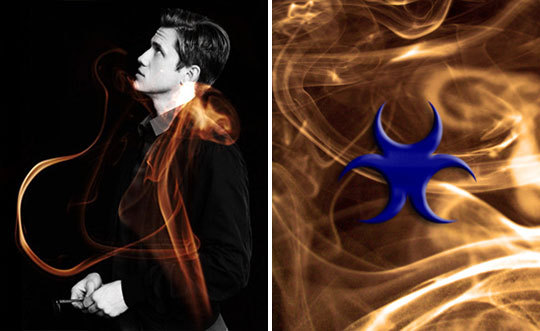
Marcel “Hamlet” Gusterson | Twenty Nine; Survivor
House: Brink Security Class: 2 Status: Deluded
History
You cannot, sir, take from me anything that I will more willingly part withal — except my life — except my life — except my life. (Hamlet, Act ii).
He was Hamlet even then—when he was growing up and his father would call him his ‘Little Hamlet’ whenever Marcel’s emotions got the best of him and he fell victim to his tendency for dramatics. Therefore it was a sad irony the way the tragedy of Little Hamlet Gusterson came to be.
Marcel was born into a low income household but where his clothes were threadbare, the bonds that held parent and son together were not. His father, a theater teacher at the local high school, was the only family that Marcel had ever known, his mother having run off with his far richer uncle when he was only a few months old. Marcel and his father led comfortable, warm, lives filled with laughter and the shared passion for plays and all things theater and Shakespearean. However happiness would soon prove to slip from their grasps like unmatchable ghosts.
It was during the production of Hamlet, one of the many plays his father coached and directed, but this one a personal favorite of both Gusterson men, that a horrific accident resulted in his father’s death. Blood drenched across his hands, a damned spot that may never pass. Always one to help out with crew and cast, prompting actors their forgotten lines, aiding with the organization of costumes and set design, Marcel’s father asked him to assist in a demonstration to the struggling actor who was playing Hamlet. As a visual aid the Director slunk behind the drapes of the set, instructing Marcel to mark the steps the young actor should take during this iconic scene where Hamlet accidentally takes the life of Ophelia’s father.
This moment was the cusp of Marcel’s insanity. For though no one is certain how it happened, somehow the stage designated prop dagger was switched with a real one in what everyone who was present that night hope can be attributed to an incredibly tragic accident. Not surprisingly, Marcel began to lose proper grasp of himself the second the knife broke flesh. He spent months hospitalized for his severe state of shock, his memories and concept of reality blurred and coming and going, the results of a kind of psychogenic amnesia.
After about six or eight months of extensive therapy, Marcel’s case was looking up. But though his memories were more or less intact and his day to day function had mostly returned, Marcel suffered traumatic and resilient nightmares. He had returned home, but lead a very isolated lifestyle, and his friends and loved ones were naturally concerned for his continuing health.
Little did any of them know that just over two weeks later, nightmares would be the least of Marcel’s worries.
Marcel Today
No one quite knows how or when exactly Marcel’s delusion came into play, as he was discovered with a small clan of survivors up North by one of Colony 22’s rescue expeditions, about a year after D-Day. According to the survivors he was found with, he’d been in a complete dazed shock and virtually mute for roughly the first four months of survival, until one morning he woke up as if a switch had flicked in his brain. Apparently, he suddenly believed himself to be the Prince of Denmark himself, speaking in character with convincing diligence—naturally, having no way to knowing of his background, his fellow survivors were baffled and confused.
By the time he was brought to Colony 22, the persona had faded and morphed into something less precise and less predictable. He began to exist on an imagined reality of Shakespearean times, never a recognizable character himself, but always believing himself to be deeply embedded into one of the stories. Romeo and Juliet, Macbeth, A Midsummer Night’s Dream—he started to see those around him as characters from whichever tale his mind was currently setting him in, and it became obvious that though the play itself was ever changing, one thing remained the same—Shakespeare, always Shakespeare, and he spoke as authentically as though he really was one of William’s characters lept to life off the page.
However, Marcel has moments of lucidity, and just like the ever changing pattern of the Shakespearean world his delusion has plunged him into, he will snap in and out of real life with his memories of his existence during his hallucinations vague and blurry. He doesn’t forget everything, but the details become confusing and it’s like trying to make sense of a dream that had made sense while you were experiencing it, but lacks clarity while awake.
Thanks to the partial retrieval of information from the Echo Database, Marcel’s situation is better understood. The story of his traumatic past was uncovered, and he became an example of how this infection that lab researchers are so busy trying to puzzle out, can not only change a carrier’s future but also be affected by their past.
HOME | PLOT | SURVIVORS | INFECTIONS | 2157 was the end of the world.
1 note
·
View note
Text
Reto de Lectura Rory Gilmore
Sé que llego tarde a este reto de lectura pero nunca me había animado a tomarlo, lo descubrí hace años no recuerdo donde y ahora que me topé con el de nuevo en BlackWhite Read Books y queria intentarlo.
Gilmore Girls fue una gran parte de mi adolescencia vi todos los capítulos más de una vez y me identificaba con Rory, su amor por la lectura y su vida cotidiana, es una serie que siempre vivirá en mi corazón y es más que una serie para mí, me enseño muchas cosas y me ayudo con muchas más.
El reto de lectura consiste en leer todos los libros que Rory leyó a lo largo de la serie, los cuales son muchos, entre ellos existen muchos clásicos como Alicia en el País de las Maravillas y El Diario de Anna Frank, la mayoría de libros en esta lista no están siquiera en mi lista TBR la cual es otra de las razones por las que quiero intentarlo, la lista consiste de 339 libros por lo que no me pondré propósitos irreales como leerlos todos durante este año (2016), en dos años o en cinco, simplemente me propondré terminar esta lista algún día y divertirme con ella.
Marcare mi progreso en este post y quizá haga una reseña de ellos, los mencione en mis libros del mes o en GoodReads pero primordialmente será aquí.
Romeo and Juliet by William Shakespeare
Harry Potter and the Sorcerer’s Stone by J. K. Rowling
Harry Potter and the Goblet of Fire by J. K. Rowling
Hamlet by William Shakespeare
The Metamorphosis by Franz Kafka
The Perks of Being a Wallflower by Stephen Chbosky
Alice in Wonderland by Lewis Carroll
Wuthering Heights by Emily Bronte
Inferno by Dante
The Divine Comedy by Dante
1984 by George Orwell
A Bolt from the Blue and Other Essays by Mary McCarthy
A Christmas Carol by Charles Dickens
A Clockwork Orange by Anthony Burgess
A Comedy of Errors by William Shakespeare
A Confederacy of Dunces by John Kennedy Toole
A Heartbreaking Work of Staggering Genius by Dave Eggers
A Monetary History of the United States by Milton Friedman
A Month Of Sundays: Searching For The Spirit And My Sister by Julie Mars
A Moveable Feast by Ernest Hemingway
A Passage to India by E.M. Forster
A Quiet Storm by Rachel Howzell Hall
A Room of One’s Own by Virginia Woolf
A Room with a View by E. M. Forster
A Separate Peace by John Knowles
A Streetcar Named Desiree by Tennessee Williams
A Tale of Two Cities by Charles Dickens
A Tree Grows in Brooklyn by Betty Smith
Adventures of Huckleberry by Mark Twain
An American Tragedy by Theodore Dreiser
Angela’s Ashes by Frank McCourt
Anna Karenina by Leo Tolstoy
As I Lay Dying by William Faulkner
Atonement by Ian McEwan
Autobiography of a Face by Lucy Grealy
Babe by Dick King-Smith
Backlash: The Undeclared War Against American Women by Susan Faludi
Balzac and the Little Chinese Seamstress by Dai Sijie
Bel Canto by Ann Patchett
Beloved by Toni Morrison
Beowulf: A New Verse Translation by Seamus Heaney
Bitch in Praise of Difficult Women by Elizabeth Wurtzel
Brave New World by Aldous Huxley
Brick Lane by Monica Ali
Bridgadoon by Alan Jay Lerner
Candide by Voltaire
Carrie by Stephen King
Catch-22 by Joseph Heller
Charlotte’s Web by E. B. White
Christine by Stephen King
Complete Novels by Dawn Powell
Complete Stories by Dorothy Parker
Cousin Bette by Honore de Balzac
Crime and Punishment by Fyodor Dostoevsky
Cujo by Stephen King
Daughter of Fortune by Isabel Allende
David and Lisa by Dr Theodore Issac Rubin M.D
David Copperfield by Charles Dickens
Dead Souls by Nikolai Gogol
Demons by Fyodor Dostoyevsky
Death of a Salesman by Arthur Miller
Deenie by Judy Blume
Don Quixote by Cervantes
Driving Miss Daisy by Alfred Uhrv
Dr. Jekyll & Mr. Hyde by Robert Louis Stevenson
Edgar Allan Poe: Complete Tales & Poems by Edgar Allan Poe
Eleanor Roosevelt by Blanche Wiesen Cook
Ella Minnow Pea: A Novel in Letters by Mark Dunn
Eloise by Kay Thompson
Emily the Strange by Roger Reger
Emma by Jane Austen
Empire Falls by Richard Russo
Encyclopedia Brown: Boy Detective by Donald J. Sobol
Ethan Frome by Edith Wharton
Ethics by Spinoza
Europe through the Back Door, 2003 by Rick Steves
Eva Luna by Isabel Allende
Everything Is Illuminated by Jonathan Safran Foer
Extravagance by Gary Krist
Fahrenheit 451 by Ray Bradbury
Fahrenheit 9/11 by Michael Moore
Fat Land: How Americans Became the Fattest People in the World by Greg Critser
Fear and Loathing in Las Vegas by Hunter S. Thompson
Fiddler on the Roof by Joseph Stein
Finnegan’s Wake by James Joyce
Fletch by Gregory McDonald
Flowers for Algernon by Daniel Keyes
Frankenstein by Mary Shelley
Franny and Zooey by J. D. Salinger
Freaky Friday by Mary Rodgers
Galapagos by Kurt Vonnegut
Gender Trouble by Judith Butler
George W. Bushism: The Slate Book of the Accidental Wit and Wisdom of our 43rd President by Jacob Weisberg
Gidget by Fredrick Kohner
Girl, Interrupted by Susanna Kaysen
Goldilocks and the Three Bears by Alvin Granowsky
Gone with the Wind by Margaret Mitchell
Great Expectations by Charles Dickens
Heart of Darkness by Joseph Conrad
Helter Skelter: The True Story of the Manson Murders by Vincent Bugliosi and Curt Gentry
Henry IV, part I by William Shakespeare
Henry IV, part II by William Shakespeare
Henry V by William Shakespeare
High Fidelity by Nick Hornby
Holidays on Ice: Stories by David Sedaris
House of Sand and Fog by Andre Dubus III
How to Breathe Underwater by Julie Orringer
How the Grinch Stole Christmas by Dr. Seuss
How the Light Gets In by M. J. Hyland
Howl by Allen Ginsberg
I’m With the Band by Pamela des Barres
In Cold Blood by Truman Capote
Inherit the Wind by Jerome Lawrence and Robert E. Lee
Iron Weed by William J. Kennedy
It Takes a Village by Hillary Rodham Clinton
Jane Eyre by Charlotte Bronte
Julius Caesar by William Shakespeare
Just a Couple of Days by Tony Vigorito
Kitchen Confidential: Adventures in the Culinary Underbelly by Anthony Bourdain
Lady Chatterleys’ Lover by D. H. Lawrence
Leaves of Grass by Walt Whitman
Less Than Zero by Bret Easton Ellis
Letters to a Young Poet by Rainer Maria Rilke
Lies and the Lying Liars Who Tell Them by Al Franken
Life of Pi by Yann Martel
Little Dorrit by Charles Dickens
Little Women by Louisa May Alcott
Living History by Hillary Rodham Clinton
Lord of the Flies by William Golding
Macbeth by William Shakespeare
Madame Bovary by Gustave Flaubert
Marathon Man by William Goldman
Memoirs of a Dutiful Daughter by Simone de Beauvoir
Memoirs of General W. T. Sherman by William Tecumseh Sherman
Me Talk Pretty One Day by David Sedaris
Mencken’s Chrestomathy by H. R. Mencken
Middlesex by Jeffrey Eugenides
Moby Dick by Herman Melville
Moliere: A Biography by Hobart Chatfield Taylor
Monsieur Proust by Celeste Albaret
Mrs. Dalloway by Virginia Woolf
Mutiny on the Bounty by Charles Nordhoff and James Norman Hall
My Lai 4: A Report on the Massacre and It’s Aftermath by Seymour M. Hersh
My Life as Author and Editor by H. R. Mencken
My Life in Orange: Growing Up with the Guru by Tim Guest
Myra Waldo’s Travel and Motoring Guide to Europe, 1978 by Myra Waldo
My Sister’s Keeper by Jodi Picoult
Nervous System: Or, Losing My Mind in Literature by Jan Lars Jensen
New Poems of Emily Dickinson by Emily Dickinson
Nickel and Dimed by Barbara Ehrenreich
Night by Elie Wiesel
Northanger Abbey by Jane Austen
Novels 1930-1942: Dance Night/Come Back to Sorrento, Turn, Magic Wheel/Angels on Toast/A Time to be Born by Dawn Powell
Notes of a Dirty Old Man by Charles Bukowski
Of Mice and Men by John Steinbeck
Old School by Tobias Wolff
On the Road by Jack Kerouac
One Flew Over the Cuckoo’s Nest by Ken Kesey
One Hundred Years of Solitude by Gabriel Garcia Marquez
Oracle Night by Paul Auster
Oryx and Crake by Margaret Atwood
Othello by Shakespeare
Our Mutual Friend by Charles Dickens
Out of Africa by Isac Dineson
Peyton Place by Grace Metalious
Pigs at the Trough by Arianna Huffington
Pinocchio by Carlo Collodi
Please Kill Me: The Uncensored Oral History of Punk Legs McNeil and Gillian McCain
Pride and Prejudice by Jane Austen
Property by Valerie Martin
Pushkin: A Biography by T. J. Binyon
Pygmalion by George Bernard Shaw
Quattrocento by James Mckean
Rapunzel by Grimm Brothers
Reading Lolita in Tehran: A Memoir in Books by Azar Nafisi
Rebecca by Daphne du Maurier
Rebecca of Sunnybrook Farm by Kate Douglas Wiggin
Rescuing Patty Hearst: Memories From a Decade Gone Mad by Virginia Holman
R Is for Ricochet by Sue Grafton
Rita Hayworth by Stephen King
Robert’s Rules of Order by Henry Robert
Roman Holiday by Edith Wharton
Rosemary’s Baby by Ira Levin
Sacred Time by Ursula Hegi
Sanctuary by William Faulkner
Savage Beauty: The Life of Edna St. Vincent Millay by Nancy Milford
Say Goodbye to Daisy Miller by Henry James
Seabiscuit: An American Legend by Laura Hillenbrand
Secrets of the Flesh: A Life of Colette by Judith Thurman
Selected Hotels of Europe
Selected Letters of Dawn Powell: 1913-1965 by Dawn Powell
Sense and Sensibility by Jane Austen
Several Biographies of Winston Churchill
Sexus by Henry Miller
Shane by Jack Shaefer
Siddhartha by Hermann Hesse
S Is for Silence by Sue Grafton
Slaughter-house Five by Kurt Vonnegut
Small Island by Andrea Levy
Snows of Kilimanjaro by Ernest Hemingway
Snow White and Rose Red by Grimm Brothers
Social Origins of Dictatorship and Democracy: Lord and Peasant in the Making of the Modern World by Barrington Moore
Song of the Simple Truth: The Complete Poems of Julia de Burgos by Julia de Burgos
Songbook by Nick Hornby
Sonnets from the Portuegese by Elizabeth Barrett Browning
Sophie’s Choice by William Styron
Speak, Memory by Vladimir Nabokov
Stiff: The Curious Lives of Human Cadavers by Mary Roach
Stuart Little by E. B. White
Sun Also Rises by Ernest Hemingway
Swann’s Way by Marcel Proust
Swimming with Giants: My Encounters with Whales, Dolphins and Seals by Anne Collett
Sybil by Flora Rheta Schreiber
Tender Is The Night by F. Scott Fitzgerald
Term of Endearment by Larry McMurtry
Time and Again by Jack Finney
To Have and Have Not by Ernest Hemingway
To Kill a Mockingbird by Harper Lee
Truth & Beauty: A Friendship by Ann Patchett
Tuesdays with Morrie by Mitch Albom
The Amazing Adventures of Kavalier & Clay by Michael Chabon
The Diary of a Young Girl by Anne Frank
The Archidamian War by Donald Kagan
The Art of Fiction by Henry James
The Art of War by Sun Tzu
The Awakening by Kate Chopin
The Bell Jar by Sylvia Plath
The Bhagava Gita
The Bielski Brothers: The True Story of Three Men Who Defied the Nazis, Built a Village in the Forest, and Saved 1,200 Jews by Peter Duffy
The Canterbury Tales by Chaucer
The Catcher in the Rye by J. D. Salinger
The Children’s Hour by Lillian Hellman
The Code of the Woosters by P.G. Wodehouse
The Collected Stories by Eudora Welty
The Complete Poems by Anne Sexton
The Count of Monte Cristo by Alexandre Dumas
The Crimson Petal and the White by Michel Faber
The Crucible by Arthur Miller
The Curious Incident of the Dog in the Night-Time by Mark Haddon
The Da Vinci -Code by Dan Brown
The Devil in the White City: Murder, Magic, and Madness at the Fair that Changed America by Erik Larson
The Dirt: Confessions of the World’s Most Notorious Rock Band by Tommy Lee, Vince Neil, Mick Mars and Nikki Sixx
The Divine Secrets of the Ya-Ya Sisterhood by Rebecca Wells
The Electric Kool-Aid Acid Test by Tom Wolfe
The Fall of the Athenian Empire by Donald Kagan
The Fellowship of the Ring by J. R. R. Tolkien
The Five People You Meet in Heaven by Mitch Albom
The Fortress of Solitude by Jonathan Lethem
The Fountainhead by Ayn Rand
The Gnostic Gospels by Elaine Pagels
The Godfather: Book 1 by Mario Puzo
The God of Small Things by Arundhati Roy
The Good Soldier by Ford Maddox Ford
The Gospel According to Judy Bloom
The Graduate by Charles Webb
The Grapes of Wrath by John Steinbeck
The Great Gatsby by F. Scott Fitzgerald
The Group by Mary McCarthy
The History of the Decline and Fall of the Roman Empire by Edward Gibbon
The Holy Barbarians by Lawrence Lipton
The House of the Spirits by Isabel Allende
The Hunchback of Notre Dame by Victor Hugo
The Iliad by Homer
The Joy Luck Club by Amy Tan
The Jumping Frog by Mark Twain
The Jungle by Upton Sinclair
The Kitchen Boy: A Novel of the Last Tsar by Robert Alexander
The Kite Runner by Khaled Hosseini
The Last Empire: Essays 1992-2000 by Gore Vidal
The Legend of Bagger Vance by Steven Pressfield
The Little Locksmith by Katharine Butler Hathaway
The Little Match Girl by Hans Christian Andersen
The Lottery: And Other Stories by Shirley Jackson
The Lovely Bones by Alice Sebold
The Love Story by Erich Segal
The Manticore by Robertson Davies
The Master and Margarita by Mikhail Bulgakov
The Meaning of Consuelo by Judith Ortiz Cofer
The Merry Wives of Windsor by William Shakespeare
The Miracle Worker by William Gibson
The Mojo Collection: The Ultimate Music Companion by Jim Irvin
The Naked and the Dead by Norman Mailer
The Name of the Rose by Umberto Eco
The Namesake by Jhumpa Lahiri
The Nanny Diaries by Emma McLaughlin
The New Way Things Work by David Macaulay
The Norton Anthology of Theory and Criticism by William E. Cain, Laurie A. Finke, Barbara E. Johnson, John P. McGowan
The Opposite of Fate: Memories of a Writing Life by Amy Tan
The Outbreak of the Peloponnesian War by Donald Kagan
The Outsiders by S. E. Hinton
The Peace of Nicias and the Sicilian Expedition by Donald Kagan
The Picture of Dorian Gray by Oscar Wilde
The Polysyllabic Spree by Nick Hornby
The Portable Dorothy Parker by Dorothy Parker
The Portable Nietzche by Fredrich Nietzche
The Price of Loyalty: George W. Bush, the White House, and the Education of Paul O’Neill by Ron Suskind
The Raven by Edgar Allan Poe
The Razor’s Edge by W. Somerset Maugham
The Red Tent by Anita Diamant
The Return of the King by J. R. R. Tolkien
The Rough Guide to Europe, 2003 Edition
The Scarecrow of Oz by Frank L. Baum
The Scarlet Letter by Nathaniel Hawthorne
The Second Sex by Simone de Beauvoir
The Secret Life of Bees by Sue Monk Kidd
The Shadow of the Wind by Carlos Ruiz Zafon
The Shining by Stephen King
The Song of Names by Norman Lebrecht
The Song Reader by Lisa Tucker
The Sonnets by William Shakespeare
The Sound and the Fury by William Faulkner
The Story of My Life by Helen Keller
The Time Traveler’s Wife by Audrey Niffenegger
The Tragedy of Richard III by William Shakespeare
The Unabridged Journals of Sylvia Plath 1950-1962 by Sylvia Plath
The Trial by Franz Kafka
The True and Outstanding Adventures of the Hunt Sisters by Elisabeth Robinson
The Vanishing Newspaper by Philip Meyers
The Virgin Suicides by Jeffrey Eugenides
The Wizard of Oz by Frank L. Baum
The Year of Magical Thinkinf by Joan Didion
The Yearling by Marjorie Kinnan Rawlings
Ulysses by James Joyce
Uncle Tom’s Cabin by Harriet Beecher Stowe
Unless by Carol Shields
Valley of the Dolls by Jacqueline Susann
Vanity Fair by William Makepeace Thackeray
Velvet Underground’s The Velvet Underground and Nico (Thirty Three and a Third series) by Joe Harvard
Waiting for Godot by Samuel Beckett
Walden by Henry David Thoreau
Walt Disney’s Bambi by Felix Salten
War and Peace by Leo Tolstoy
We Owe You Nothing – Punk Planet: The Collected Interviews edited by Daniel Sinker
What Colour is Your Parachute? 2005 by Richard Nelson Bolles
What Happened to Baby Jane by Henry Farrell
When the Emperor Was Divine by Julie Otsuka
Who Moved My Cheese? by Spencer Johnson
Who’s Afraid of Virginia Woolf by Edward Albee
Wicked: The Life and Times of the Wicked Witch of the West by Gregory Maguire
(Post original en: http://lifements.blogspot.com/2016/01/el-reto-de-lectura-rory-gilmore.html )
#rory gilmore#rory#gilmore girls#long reads#reading#books#bookworm#books and libraries#innere leere#leyendo#sheakspeare#romance#challenge#reading challenge#2018#blogger
4 notes
·
View notes
Text
Done some Reading lol...
LYRICAL (Folksongs)
BAHAY KUBO- It was written by Felipe Padilla de Leon and it was passed down through generation
LERON LERON SINTA –Also known as "My Dear, Little Leron," is a popular Filipino folk song from the Tagalog region. It is traditionally a work song, representing those who work in the fields harvesting fruits
MAGTANIM AY DI BIRO- Originated by the Central Luzon, where most people are farmers. This folk song talks about the basic life and hard work of farmers.
NARRATIVE
Beowulf (EPIC)- Celebrated as a national text in most Nordic countries. Purportedly the strongest man that ever lived, Beowulf is hired by Hrothgar to protect his domain from a grotesque swamp creature, Grendel. Not only does he vanquish him, but he also confronts his mother, various sea creatures a terrifying fire-breathing dragon.
Romeo and Juliet(METRICAL TALES)- An age-old vendetta between two powerful families erupts into bloodshed. A group of masked Montagues risk further conflict by gatecrashing a Capulet party. A young lovesick Romeo Montague falls instantly in love with Juliet Capulet, who is due to marry her father's choice, the County Paris
Can't help falling in love with you (BALLAD)- The Song upholds FALLING IN LOVE by telling about popular facts,criticism as well as true nature of LOVE. People say love is where fools tread and it’s a sin.But lover says, it may be but I can’t help falling in love.It’s as natural as the river flows into the sea.That’s where it belongs to. The love has to happen,it has happened I have fallen in love with you, I couldn’t help.. He says to lady love ,take my hand -means-accept my love- and I am offering you my entire life to you.The love is such a thing one is ready to give his life to her.
DRAMATIC
Abou Ben Adhem-is a poem by Leigh Hunt, a key figure of the Romantic movement in England. The poem focuses on an event in the life of the Sufi saint Ibrahim bin Adham
The Tragedy of Hamlet, Prince of Denmark (SOLILOQUY)- often shortened to Hamlet (/ˈhæmlɪt/), is a tragedy written by William Shakespeare sometime between 1599 and 1601. It is Shakespeare's longest play with 30,557 words. Set in Denmark, the play depicts Prince Hamlet and his revenge against his uncle, Claudius, who has murdered Hamlet's father in order to seize his throne and marry Hamlet's mother.
My Last Duchess- is a poem by Robert Browning, frequently anthologised as an example of the dramatic monologue. It first appeared in 1842 in Browning's Dramatic Lyrics.[1] The poem is written in 28 rhyming couplets of iambic pentameter.
Activity# 2: Poetry Literary Pieces
0 notes
Text
The world’s best-selling books list
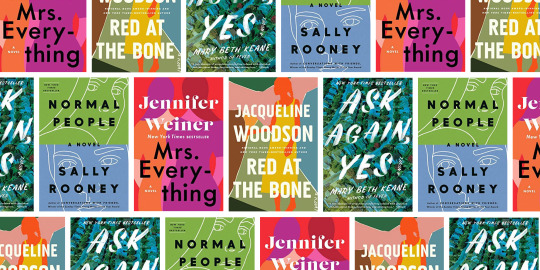
In my previous blog, I shared some of the most expensive books in the world. In this blog, I will again share some other world’s best selling books list. As I am hoping that you would be enjoyed the previous list of expensive books. So Today this list might excite you again to know some more best selling books.
So let’s get started on the list of best-selling books.
No.1 Geoffrey Chaucer the Canterbury Tales 7.5 million$:
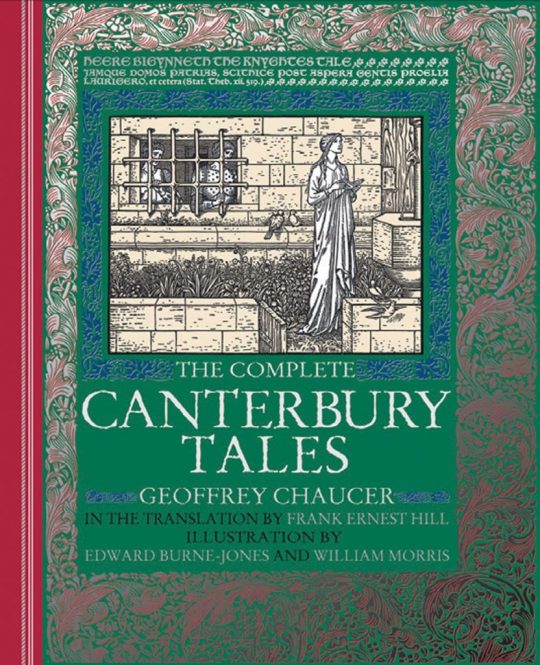
The story goes on with the Canterbury Tales written by Geoffrey Chaucer. This book is actually a collection of 24 stories that runs over 17,000 lines written in Middle English circa 1387 to 1400. Which makes the book extremely fragile and old. Although most of the story is written in verse and prose typically for the medieval age. It focuses on a group of pilgrims as they travel from London to Canterbury to visit the shrine of St. Thomas Becket at Canterbury Cathedral.
There were only 12 copies made of this book and one of them was sold for a huge amount of 7.5 million dollars back in 1998. This expensive copy has had quite an interesting journey. It was acquired by the first Earl Fitzwilliam for only six pounds back in 1776. And then passed it on for generations until it was sold for millions of dollars 20 years ago. This cost is no wonder to anyone since the book has had a huge impact on English literature.
If you're more into films than books then maybe watch the 1975 BBC 2 TV adaptation by Alan platter. Oh by the way if you're into books and audiobooks as much as I am. I recommend you go to a Lux calm / free book and get yourself a free audiobook when you sign up.
No. 2 William Shakespeare comedies histories and tragedies 6.16 million $:
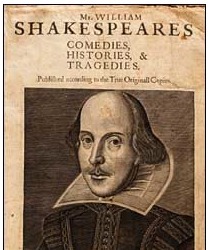
If to be or not to be is still the question that pops into your mind then you paid attention in English class. William Shakespeare is one of the most famous and respected writers in the whole world. He contributed to the development of the English vocabulary and no matter who you ask. They sure know one of his famous tragedies Romeo and Juliet. Even though most people have heard of him or have read Romeo and Juliet or Hamlet.
Shakespeare wrote many other comedies tragedies and plays. In this exclusive list, we're talking about the folio William Shakespeare comedies histories and tragedies from 1623. And it's considered to be one of the most influential books ever published in the English language. Not a lot of copies were made back then and only a third of them survived since the 17th century. A few of these copies that did make it are now stored in libraries. Where people can see them and if need be use them.
One of them was actually sold for 6.16 million dollars at an auction in 2001 by Microsoft co-founder Paul Allen. And to think back than just one copy was sold for one pound. Today and nowadays they are one of the most expensive books in history crazy.
No. 3 Gutenberg Bible four point nine million $:
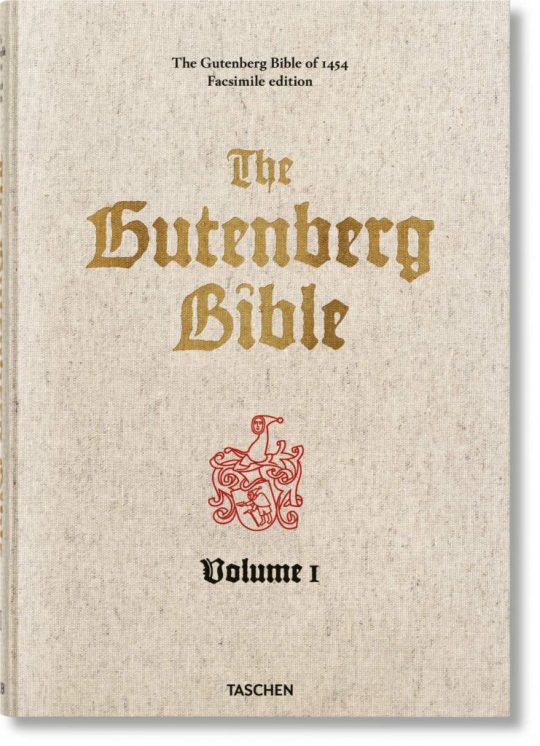
Flipping some pages we end up to a special book a unique piece of history and modernism. The Gutenberg Bible is the initial major book printed using mass-produced movable metal types in Europe. And the book that recorded the beginning of the printing press. keet in mind that this beauty was printed by Johannes Gutenberg himself in manes Germany back in 14:50 ish. That fact alone makes the value of this book skyrocket to a few million dollars. Even though it's written in Latin.
Doing some further research I found out that only 49 copies have survived over the years. And one of them was sold for 4.9 million dollars back in 1987. Of course, it's hard to set a value of money for the Bible the holy book God's words. But for one of the first-ever printed versions, it can. And by the way, have you guys noticed that one of the first books that Gutenberg printed was the Bible? Today we can find around 2.5 billion copies of the Bible translated into two thousand languages.
No. 4 Henri Louis Duhamel Du Monceau Treatise on Fruit trees 4.5 million $:
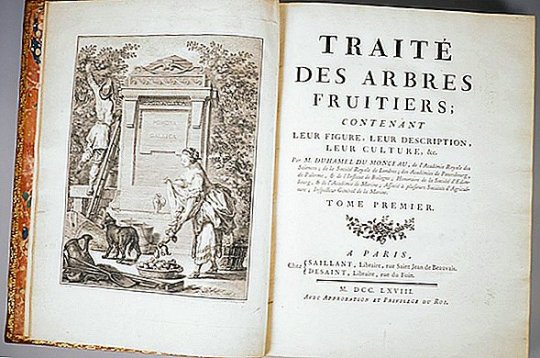
Moving on to the best-selling books list. I have an amazing and useful illustration book the treatise on fruit trees by owner Louis Duhamel Du Monceau. One of the most significant books of its sort. The first edition the one I am talking about here dates back to 1768 and it has 181 full-page edgings. It is written in collaboration and up to this day, the essays still provide essential and necessary instructions for gardeners. It might not seem interesting for some of you. But growing and keeping fruit trees in the best condition is not easy peasy.
It takes a lot of skill and knowledge and not everyone can master it. This book although it's from the 18th century still holds the techniques most people use today. The first edition with beautiful red Moroccan leather and gold lining is estimated to be worth around sixty-five thousand dollars and 4.5 five million dollars. Which is a lot of money on fruit trees exclusively but there's good value for money. Since the book consists of a five-volume set of illustrations and text by the author himself.
It’s a rare book from the late 1700s with fundamental work knowledge and culture of fruit trees and the Pierre. And Pierre Jean Francois Turpin's illustrations were sold for 4.5 million dollars back in 2006. If you know an agronomist or you have a plant or tree lovers in your family then they will definitely love it.
No. 5 JK Rowling the Tales of Beedle the bard 3.98 million $:
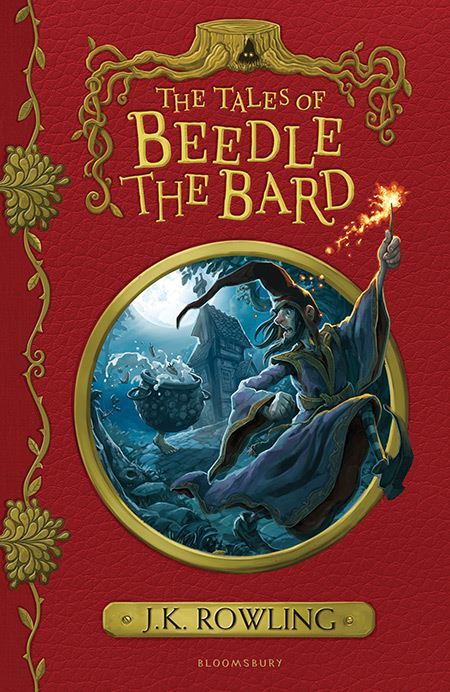
It is probably one of the most famous female writers in history JK Rowling. She's one of the first authors to become a billionaire. And her beloved Harry Potter series is the best-selling series of all time. Yes, she's full of World Records and inspiration the Tales of Beedle the Bard is a children's book. That is also mentioned in Harry Potter and the Deathly Hallows. The last book of the Harry Potter series as a gift Dumbledore gave to Hermione.
The book has been released in a limited edition of seven copies only handwritten by JK Rowling herself. One of the books the moonstone Edition was sold at auction for 3.98 million dollars and the profits were donated to charity. That's such a JK Rowling thing to do at this price. The innovative literature book has become the most precious book of its sort scoring another record for its great author. Other than the money stats about this book I did some more digging.
To find out about its limited edition books and seems like the other six copies were gifted to those who were involved in the Harry Potter series. Another fascinating thing about this book is. It acts as a vehicle for introducing the Deathly Hallows to the Harry Hermione and Ron trio.
Read the full article
0 notes
Photo

i noticed y’all have been enjoying my novel masterposts. so im just going to keep posting because im obsessed with books like that T.T
for my study-like-rory studyblr friends who want to read all the books mentioned in gilmore girls (because hello?? who doesn’t??), here’s a list! pls let me know if i missed a book, but i think it’s quite a complete list! enjoy!!
#
1984 – George Orwell
A
The Adventures of Huckleberry Finn – Mark Twain
Alice in Wonderland – Lewis Carroll
The Amazing Adventures of Kavalier & Clay – Michael Chabon
An American Tragedy – Theodore Dreiser
Angela’s Ashes – Frank McCourt
Anna Karenina – Leo Tolstoy
Anne Frank: Diary of a Young Girl – Anne Frank
Archidamian War – Donald Kagen
The Art of Fiction – Henry James
The Art of War – Sun Tzu
As I Lay Dying – William Faulkner
Atonement – Ian McEwan
The Awakening – Kate Chopin
Autobiography of a Face – Lucy Grealy
B
Babe – Dick King-Smith
Backlash – Susan Faludi
Balzac & the Little Chinese Seamstress – Dai Sijie
The Bell Jar – Sylvia Plath
Beloved – Toni Morrison
Beowulf – Seamus Heaney
The Bhagava Gita
The Bielski Brothers – Peter Duffy
Bitch in Praise of Difficult Women – Elizabeth Wurtzel
A Bolt From the Blue & other Essays – Mary McCarthy
Brave New World – Aldous Huxley
Brick Lane – Monica Ali
Brigadoon – Alan Jay Lerner
C
Candide – Voltaire
The Canterbury Tales – Chaucer
Carrie –Stephen King
Catch – 22 – Joseph Heller
The Catcher in the Rye – JD Salinger
The Celebrated Jumping Frog – Mark Twain
Charlotte’s Web – EB White
The Children’s Hour – Lilian Hellman
Christine – Stephen King
A Christmas Carol – Charles Dickens
A Clockwork Orange – Anthony Burgess
The Code of the Woosters – PG Wodehouse
The Collected Short Stories – Eudora Welty
The Collected Stories of Eudora Welty
A Comedy of Errors – William Shakespeare
Complete Novels – Dawn Powell
The Complete Poems – Anne Sexton
Complete Stories – Dorothy Parker
A Confederacy of Dunces – John Kennedy Toole
The Count of Monte Cristo – Alexandre Dumas
Cousin Bette – Honore de Balzac
Crime & Punishment – Fyodor Dostoevsky
The Crimson Petal & the White – Michael Faber
The Crucible – Arthur Miller
Cujo – Stephen King
The Curious Incident of the Dog in the Nighttime – Mark Haddon
D
Daughter of Fortune – Isabel Allende
David and Lisa – Dr. Theodore Issac Rubin
David Coperfield – Charles Dickens
The Da Vinci Code – Dan Brown
Deal Souls – Nikolai Gogol (Season 3, episode 3)
Demons – Fyodor Dostoyevsky
Death of a Salesman – Arthur Miller
Deenie – Judy Blume
The Devil in the White City – Erik Larson
The Dirt – Tommy Lee, Vince Neil, Mick Mark, & Nikki Sixx
The Divine Comedy – Dante
The Divine Secrets of the Ya-Ya Sisterhood – Rebecca Wells
Don Quijote – Cervantes
Driving Miss Daisy – Alfred Uhrv
Dr. Jekyll & Mr. Hyde – Robert Louis Stevenson
E
Complete Tales & Poems – Edgar Allan Poe
Eleanor Roosevelt – Blanche Wiesen Cook
The Electric Kool-Aid Acid Test – Tom Wolfe
Ella Minnow Pea – Mark Dunn
Eloise – Kay Thompson
Emily the Strange – Roger Reger
Emma – Jane Austen
Empire Falls – Richard Russo
Encyclopedia Brown – Donald J. Sobol
Ethan Frome – Edith Wharton
Ethics – Spinoza
Eva Luna – Isabel Allende
Everything is Illuminated – Jonathon Safran Foer
Extravagance – Gary Kist
F
Fahrenheit 451 – Ray Bradbury
Fahrenheit 911 – Michael Moore
The Fall of the Athenian Empire – Donald Kagan
Fat Land:How Americans Became the Fattest People in the World – Greg Critser
Fear & Loathing in Las Vegas – Hunter S. Thompson
The Fellowship of the Ring – J R R Tolkien
Fiddler on the Roof – Joseph Stein
The Five People You Meet in Heaven – Mitch Albom
Finnegan’s Wake – James Joyce
Fletch – Gregory McDonald
Flowers of Algernon – Daniel Keyes
The Fortress of Solitude – Jonathon Lethem
The Fountainhead – Ayn Rand
Frankenstein – Mary Shelley
Franny and Zooey – JD Salinger
Freaky Friday – Mary Rodgers
G
Galapagos – Kurt Vonnegut
Gender Trouble – Judith Baker
George W. Bushism – Jacob Weisberg
Gidget – Fredrick Kohner
Girl, Interrupted – Susanna Kaysen
The Ghostic Gospels – Elaine Pagels
The Godfather – Mario Puzo
The God of Small Things – Arundhati Roy
Goldilocks & the Three Bears – Alvin Granowsky
Gone with the Wind – Margaret Mitchell
The Good Soldier – Ford Maddox Ford
The Gospel According to Judy Bloom
The Graduate – Charles Webb
The Grapes of Wrath – John Steinbeck
The Great Gatsby – F. Scott Fitzgerald
Great Expectations – Charles Dickens
The Group – Mary McCarthy
H
Hamlet – Shakespeare
Harry Potter and the Goblet of Fire – JK Rowling
Harry Potter and the Sorcerer’s Stone – JK Rowling
A Heartbreaking Work of Staggering Genius – Dave Eggers
Heart of Darkness – Joseph Conrad
Helter Skelter – Vincent Bugliosi
Henry IV, Part 1 – Shakespeare
Henry IV, Part 2 – Shakespeare
Henry V – Shakespeare
High Fidelity – Nick Hornby
The History of the Decline and Fall of the Roman Empire – Edward Gibbons
Holidays on Ice – David Sedaris
The Holy Barbarians – Lawrence Lipton
House of Sand and Fog – Andre Dubus III
The House of the Spirits – Isabel Allende
How to Breathe Underwater – Julie Orringer
How the Grinch Stole Christmas – Dr. Seuss
How the Light Gets In – MJ Hyland
Howl – Alan Ginsburg
The Hunchback of Notre Dame – Victor Hugo
I
The Illiad – Homer
I’m With the Band – Pamela des Barres
In Cold Blood – Truman Capote
Inferno – Dante
Inherit the Wind – Jerome Lawrence & Robert E Lee
Iron Weed – William J. Kennedy
It Takes a Village – Hilary Clinton
J
Jane Eyre – Charlotte Bronte
The Joy Luck Club – Amy Tan
Julius Caesar – Shakespeare
The Jungle – Upton Sinclair
Just a Couple of Days – Tony Vigorito
K
The Kitchen Boy – Robert Alexander
Kitchen Confidential – Anthony Bourdain
The Kite Runner – Khaled Hosseini
L
Lady Chatterley’s Lover – DH Lawrence
The Last Empire: Essays 1992-2000 – Gore Vidal
Leaves of Grass – Walt Whitman
The Legend of Bagger Vance – Steven Pressfield
Less Than Zero – Bret Easton Ellis
Letters to a Young Poet – Rainer Maria Rilke
Lies and the Lying Liars Who Tell Them – Al Franken
Life of Pi – Yann Martel
Little Dorrit – Charles Dickens
The Little Locksmith – Katharine Butler Hathaway
The Little Match Girl – Hans Christian Anderson
Little Woman – Louisa May Alcott
Living History – Hillary Clinton
Lord of the Flies – William Golding
The Lottery & Other Stories – Shirley Jackson
The Lovely Bones – Alice Sebold
The Love Story – Eric Segal
M
Macbeth – Shakespeare
Madame Bovary – Gustave Flaubert
The Manticore – Robertson Davies (Season 3, episode 3)
Marathon Man – William Goldman
The Master and Margarita – Mikhail Bulgakov
Memoirs of Dutiful Daughter – Simone de Beauvoir
Memoirs of General WT Sherman – William Tecumseh Sherman
Me Talk Pretty One Day – David Sedaris
The Meaning of Consuelo – Judith Ortiz Cofer
Mencken’s Chrestomathy – HR Mencken
The Merry Wives of Windsor – Shakespeare
The Metamorphosis – Franz Kafka
Middlesex – Jeffrey Eugenides
The Miracle Worker – William Gibson
Moby Dick – Herman Melville
The Mojo Collection – Jim Irvin
Moliere – Hobart Chatfield Taylor
A Monetary History of the US – Milton Friedman
Monsieur Proust – Celeste Albaret
A Month of Sundays – Julie Mars
A Moveable Feast – Ernest Hemingway
Mrs. Dalloway – Virginia Woolf
Mutiny on the Bounty – Charles Nordhoff & James Norman Hall
My Lai 4 – Seymour M Hersh
My Life as Author and Editor – HR Mencken
My Life in Orange – Tim Guest
My Sister’s Keeper – Jodi Picoult
N
The Naked and the Dead – Norman Mailer
The Name of the Rose – Umberto Eco
The Namesake – Jhumpa Lahiri
The Nanny Diaries – Emma McLaughlin
Nervous System – Jan Lars Jensen
New Poems of Emily Dickinson
The New Way Things Work – David Macaulay
Nickel and Dimed – Barbara Ehrenreich
Night – Elie Wiesel
Northanger Abbey – Jane Austen
The Norton Anthology of Theory & Criticism – William E Cain
Novels 1930-1942: Dance Night/Come Back to Sorrento, Turn, Magic Wheel/Angels on Toast/A Time to be Born by Dawn Powell
Notes of a Dirty Old Man – Charles Bukowski
O
Of Mice and Men – John Steinbeck
Old School – Tobias Wolff
Oliver Twist – Charles Dickens
On the Road – Jack Keruac
One Day in the Life of Ivan Denisovitch – Alexander Solzhenitsyn
One Flew Over the Cuckoo’s Nest – Ken Kesey
One Hundred Years of Solitude – Gabriel Garcia Marquez
The Opposite of Fate: Memories of a Writing Life – Amy Tan
Oracle Night – Paul Auster
Oryx and Crake – Margaret Atwood
Othello – Shakespeare
Our Mutual Friend – Charles Dickens
The Outbreak of the Peloponnesian War – Donald Kagan
Out of Africa – Isac Dineson
The Outsiders – S. E. Hinton
P
A Passage to India – E.M. Forster
The Peace of Nicias and the Sicilian Expedition – Donald Kagan
The Perks of Being a Wallflower – Stephen Chbosky
Peyton Place – Grace Metalious
The Picture of Dorian Gray – Oscar Wilde
Pigs at the Trough – Arianna Huffington
Pinocchio – Carlo Collodi
Please Kill Me – Legs McNeil & Gilliam McCain
The Polysyllabic Spree – Nick Hornby
The Portable Dorothy Parker
The Portable Nietzche
The Price of Loyalty – Ron Suskind
Pride and Prejudice – Jane Austen
Property – Valerie Martin
Pushkin – TJ Binyon
Pygmalion – George Bernard Shaw
Q
Quattrocento – James McKean
A Quiet Storm – Rachel Howzell Hall
R
Rapunzel – Grimm Brothers
The Razor’s Edge – W Somerset Maugham
Reading Lolita in Tehran – Azar Nafisi
Rebecca – Daphne de Maurier
Rebecca of Sunnybrook Farm – Kate Douglas Wiggin
The Red Tent – Anita Diamant
Rescuing Patty Hearst – Virginia Holman
The Return of the King – JRR Tolkien
R is for Ricochet – Sue Grafton
Rita Hayworth – Stephen King
Robert’s Rules of Order – Henry Robert
Roman Fever – Edith Wharton
Romeo and Juliet – Shakespeare
A Room of One’s Own – Virginia Woolf
A Room with a View – EM Forster
Rosemary’s Baby – Ira Levin
The Rough Guide to Europe
S
Sacred Time – Ursula Hegi
Sanctuary – William Faulkner
Savage Beauty – Nancy Milford
Say Goodbye to Daisy Miller – Henry James
The Scarecrow of Oz – Frank L. Baum
The Scarlet Letter – Nathanial Hawthorne
Seabiscuit – Laura Hillenbrand
The Second Sex – Simone de Beauvior
The Secret Life of Bees – Sue Monk Kidd
Secrets of the Flesh – Judith Thurman
Selected Letters of Dawn Powell (1913-1965)
Sense and Sensibility – Jane Austen
A Separate Place – John Knowles
Several Biographies of Winston Churchill
Sexus – Henry Miller
The Shadow of the Wind – Carlos Ruiz Zafron
Shane – Jack Shaefer
The Shining – Stephen King
Siddartha – Hermann Hesse
S is for Silence – Sue Grafton
Slaughter-House 5 – Kurt Vonnegut
Small Island – Andrea Levy
Snows of Kilamanjaro – Ernest Hemingway
Snow White and Red Rose – Grimm Brothers
Social Origins of Dictatorship and Democracy – Barrington Moore
The Song of Names – Norman Lebrecht
Song of the Simple Truth – Julia de Burgos
The Song Reader – Lisa Tucker
Songbook – Nick Hornby
The Sonnets – Shakespeare
Sonnets from the Portuegese – Elizabeth Barrett Browning
Sophie’s Choice – William Styron
The Sound and the Fury – William Faulkner
Speak, Memory – Vladimir Nabakov
Stiff, The Curious Lives of Human Cadavers – Mary Roach
The Story of my Life – Helen Keller
A Streetcar Named Desire – Tennessee Williams
Stuart Little – EB White
Sun Also Rises – Ernest Hemingway
Swann’s Way – Marcel Proust
Swimming with Giants – Anne Collett
Sybil – Flora Rheta Schreiber
T
A Tale of Two Cities – Charles Dickens
Tender is the Night – F Scott Fitzgerald
Term of Endearment – Larry McMurty
Time and Again – Jack Finney
The Time Traveler’s Wife – Audrey Niffeneggar
To Have and to Have Not – Ernest Hemingway
To Kill a Mockingbird – Harper Lee
The Tragedy of Richard III – Shakespeare
Travel and Motoring through Europe – Myra Waldo
A Tree Grows in Brooklyn – Betty Smith
The Trial – Franz Kafka
The True and Outstanding Adventures of the Hunt Sisters – Elisabeth Robinson
Truth & Beauty – Ann Patchett
Tuesdays with Morrie – Mitch Albom
U
Ulysses – James Joyce
The Unabridged Journals of Sylvia Plath (1950-1962)
Uncle Tom’s Cabin – Harriet Beecher Stowe
Unless – Carol Shields
V
Valley of the Dolls – Jacqueline Susann
The Vanishing Newspaper – Philip Meyers
Vanity Fair – William Makepeace Thackeray
Velvet Underground – Joe Harvard
The Virgin Suicides – Jeffrey Eugenides
W
Waiting for Godot – Samuel Beckett
Walden – Henry David Thoreau
Walt Disney’s Bambi – Felix Salten
War and Peace – Leo Tolstoy
We Owe You Nothing – Daniel Sinker
What Colour is Your Parachute – Richard Nelson Bolles
What Happened to Baby Jane – Henry Farrell
When the Emperor Was Divine – Julie Otsuka
Who Moved My Cheese? Spencer Johnson
Who’s Afraid of Virginia Woolf? Edward Albee
Wicked – Gregory Maguire
The Wizard of Oz – Frank L Baum
Wuthering Heights – Emily Bronte
Y
The Yearling – Marjorie Kinnan Rawlings
The Year of Magical Thinking – Joan Didion
OTHER RESOURCES:
19th Century Novels Masterpost
20th Century Novels Masterpost
21st Century Novels Masterpost
Rory Gilmore’s Reading List
Series Masterpost
#books#booklr#bookblr#books and libraries#bookstagram#studyblr#studyspo#studygram#student#study#mochi studies#elkstudies#blushstudies#studiees#chrissiestudies#studywithmaggie#studywithclover#studywithkal#education#educaticn#themedtimes#college#masterpost#studyblr masterpost#bullet journal#bujo#small studyblr#gilmore girls#rory gilmore#lorelai gilmore
6K notes
·
View notes